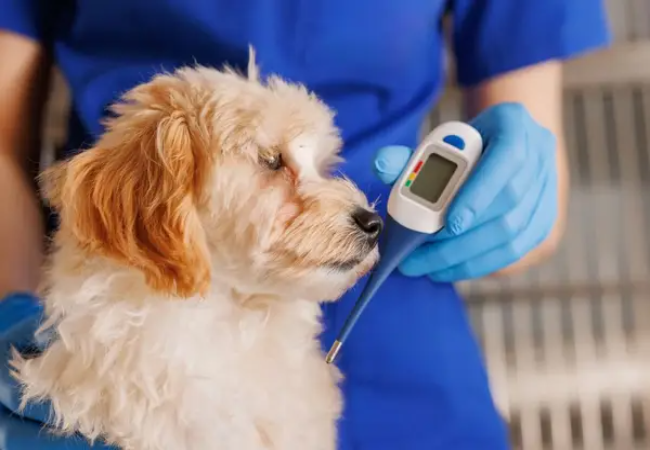Veterinary Guide to Canine Liver Failure 2025 🐶🍂🩺

In this article
Veterinary Guide to Canine Liver Failure 2025 🩺🐶
By Dr. Duncan Houston BVSc
🧬 What Is Liver Failure?
Liver failure occurs when over ~70% of hepatic function is lost, either acutely or chronically. The liver’s critical roles—detoxification, bile production, nutrient storage, protein and clotting factor synthesis—become compromised, leading to systemic illness.
⚠️ Clinical Signs: When Liver Disease Becomes Failure
Symptoms emerge when liver function declines sharply or over time:
- Jaundice (icterus): yellow gums, eyes, and skin due to bilirubin buildup.
- Ascites: fluid accumulation giving a “pot‑bellied” appearance, due to low albumin.
- Hepatic encephalopathy: neurologic signs like seizures, head-pressing, confusion from toxin buildup.
- GI signs: vomiting, diarrhea (possibly grey), anorexia, weight loss.
- PU/PD: increased drinking & urination from impaired metabolism.
- Lethargy, fever, abdominal discomfort: often present.
- Coagulopathies: bleeding issues, bruising from poor clotting-factor production.
🔍 Diagnosing Liver Failure
- History & Exam: note toxin ingestion, infections, breed risk (e.g., shunts).
- Bloodwork: CBC, chemistries (ALT, ALP, bilirubin, albumin), clotting panels, bile acids, ammonia.
- Urinalysis: assess concentrating ability, toxins.
- Imaging: ultrasound/X-ray to identify shunts, masses, ascites.
- Special Tests: bile acids, ammonia, especially for shunts.
- Sampling: FNA/biopsy to identify neoplasia, copper storage, chronic hepatitis.
🛠️ Treatment Strategies
1. Treat the Underlying Cause
- Toxins: remove via decontamination, antidotes, supportive care (e.g., NSAID, xylitol, mushroom poisoning).
- Infections: use targeted antibiotics (e.g., leptospirosis) or antifungals..
- Shunts: surgical attenuation with ameroid band or cellophane for congenital shunts—excellent outcomes for extrahepatic cases; intrahepatic shunts are harder to manage.
- Metabolic/endocrine: address underlying conditions (Cushing’s, diabetes)..
2. Supportive Care
- IV fluids, electrolytes, antiemetics, pain control.
- Lactulose + antibiotics (neomycin/metronidazole) to reduce ammonia absorption.
- Vitamin supplements: SAMe, silybin, vitamin K.
3. Nutritional Management
- Low-to-moderate protein, high-quality carbohydrates, low-fat diet.
- Prescription hepatic diets and supplement protocols.
4. Cancer or Masses
- Surgical removal for cysts or focal tumors; medical or palliative care for diffuse disease.
5. Chronic Monitoring
- Reassess labwork, imaging, and clinical signs every 3–6 months or as needed.
- Manage ongoing hepatic encephalopathy and coagulopathies.
- Track body condition, activity, appetite, neurologic health.
📈 Prognosis
- Acute or mild toxin/infection: good – liver can regenerate if treated early.
- Congenital shunts: excellent for extrahepatic; guarded for intrahepatic shunts.
- Chronic hepatitis, copper storage: fair; requires lifelong management.
- End-stage failure or cirrhosis: poor – quality of life may dictate palliative care or euthanasia.
📱 Ask A Vet Telehealth Support
- 📸 Share lab results, imaging for remote specialist review.
- 🔔 Medication, diet, ammonia-control, and recheck reminders.
- 🩺 Video assessments of neurologic status, abdominal distension, jaundice.
🎓 Case Spotlight: “Milo” the Maltese
Milo, a 2‑year‑old Maltese, showed vomiting, slow growth, and ataxia. Labs revealed elevated bile acids and ammonia; ultrasound confirmed microvascular dysplasia. With lactulose, a low-protein diet, supplements, and antibiotics, Milo stabilized in weeks. Ask A Vet provided lab tracking, dietary plans, and telehealth monitoring—now thriving at 4 🐾.
🔚 Key Takeaways
- Liver failure occurs when >70% hepatic function is lost—an emergency, whether acute or chronic.
- Watch for advanced signs: jaundice, ascites, neurologic changes, bleeding, and GI upsets.
- Diagnosis requires labwork, imaging, and sometimes biopsy or shunt testing.
- Treat by addressing cause, providing supportive care, and managing diet and supplements.
- Prognosis varies: excellent for acute or treatable causes, fair with shunts, poor in end-stage/cirrhosis.
- Ask A Vet telehealth provides critical support—diagnostics review, remote monitoring, medication coordination, and peace of mind 📲🐾
Dr Duncan Houston BVSc, founder of Ask A Vet. Download the Ask A Vet app to guide your dog through liver failure—from early signs to diagnostics, diet plans, telehealth check-ins, and informed care decisions at every stage 🐶📲






